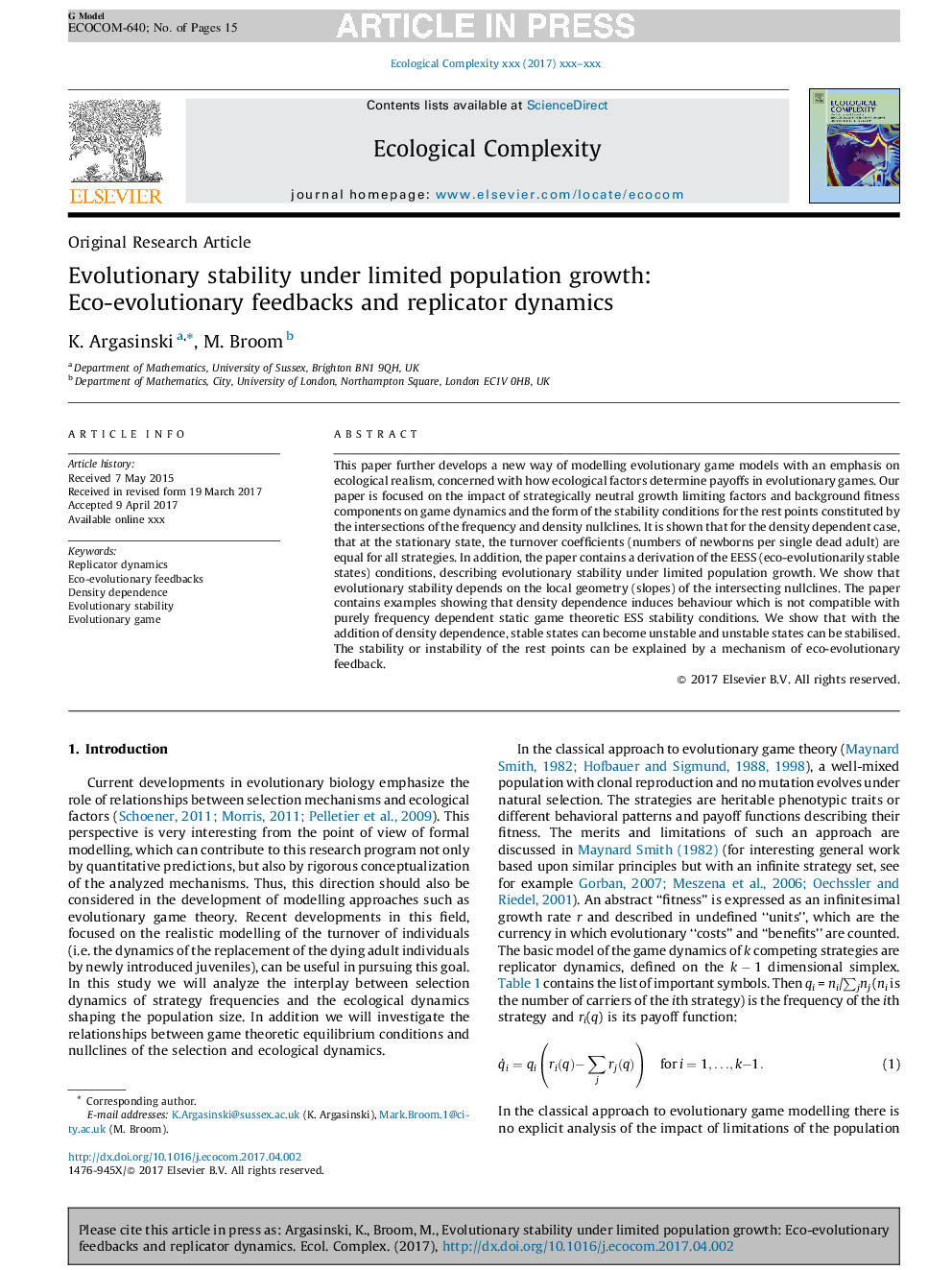| Article ID | Journal | Published Year | Pages | File Type |
|---|---|---|---|---|
| 8844838 | Ecological Complexity | 2018 | 15 Pages |
Abstract
This paper further develops a new way of modelling evolutionary game models with an emphasis on ecological realism, concerned with how ecological factors determine payoffs in evolutionary games. Our paper is focused on the impact of strategically neutral growth limiting factors and background fitness components on game dynamics and the form of the stability conditions for the rest points constituted by the intersections of the frequency and density nullclines. It is shown that for the density dependent case, that at the stationary state, the turnover coefficients (numbers of newborns per single dead adult) are equal for all strategies. In addition, the paper contains a derivation of the EESS (eco-evolutionarily stable states) conditions, describing evolutionary stability under limited population growth. We show that evolutionary stability depends on the local geometry (slopes) of the intersecting nullclines. The paper contains examples showing that density dependence induces behaviour which is not compatible with purely frequency dependent static game theoretic ESS stability conditions. We show that with the addition of density dependence, stable states can become unstable and unstable states can be stabilised. The stability or instability of the rest points can be explained by a mechanism of eco-evolutionary feedback.
Related Topics
Life Sciences
Agricultural and Biological Sciences
Ecology, Evolution, Behavior and Systematics
Authors
K. Argasinski, M. Broom,
